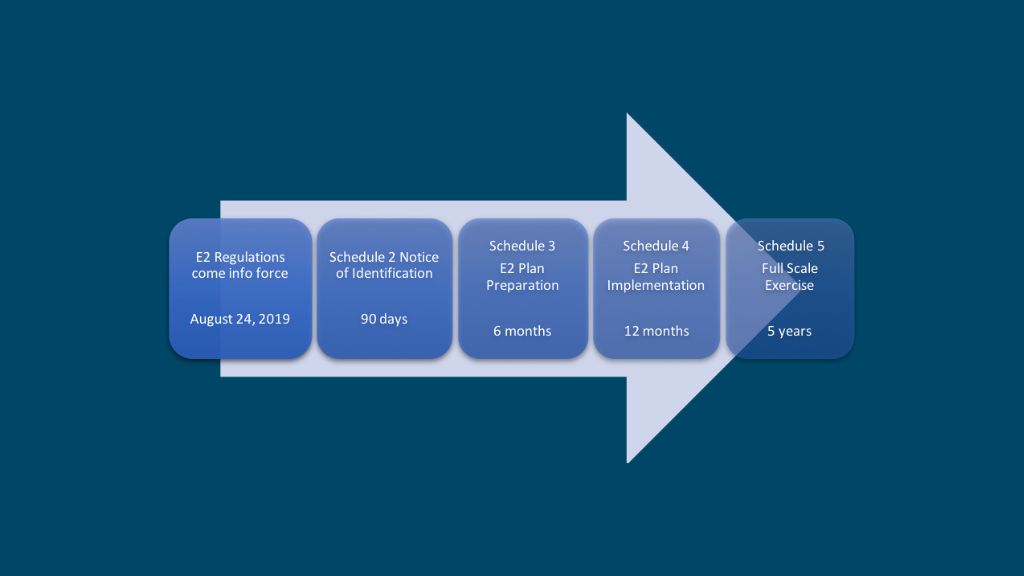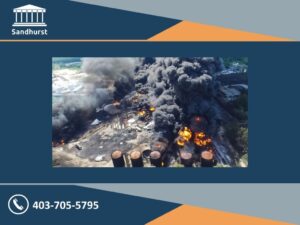On March 6, 2019, Environment and Climate Change Canada (ECCC) published the revised “E2 Regulations, 2019” (SOR/2019-51).
Changes include:
- Consolidation and modification ofSchedule 1 – List of Substances;
- 33 new substances including:crude oil, diesel, NGLs, condensates,and ammonium hydroxide;
- New hazard classes for substances; •New plan content requirements;
- Required full-scale exercise every5 years;
- Public consultation and notification measures; and
- New reporting requirements.
Regulated parties with Schedule 1 substances at or above specified thresholds may be required to provide information to ECCC. If regulatory conditions are met, parties may also be required to either develop or amend an existing E2 plan, and implement and exercise the plan along the following timetable:

Oil and gas, and chemical manufacturing sectors will be impacted the most by the new regulations. However, other industries who use or store quantities of regulated substances may also be impacted. For example, anyone requiring commercial or industrial refrigeration – food retail, warehousing, or distribution, or sport/recreational facilities – should review their operations to assess applicability. The revised E2 Regulations will come into force on August 24, 2019.
For further information, see the complete E2 Regulations, 2019 in the Canada Gazette, Part II



